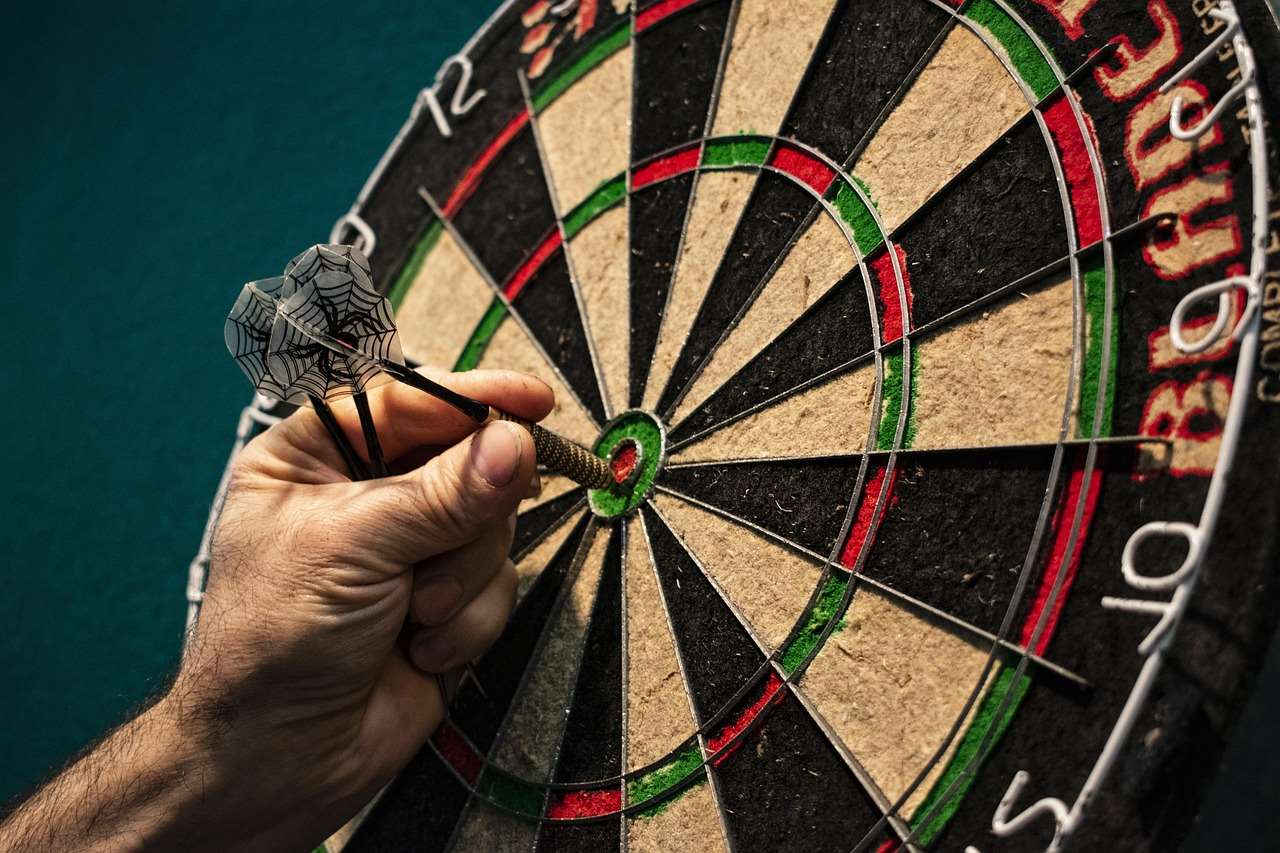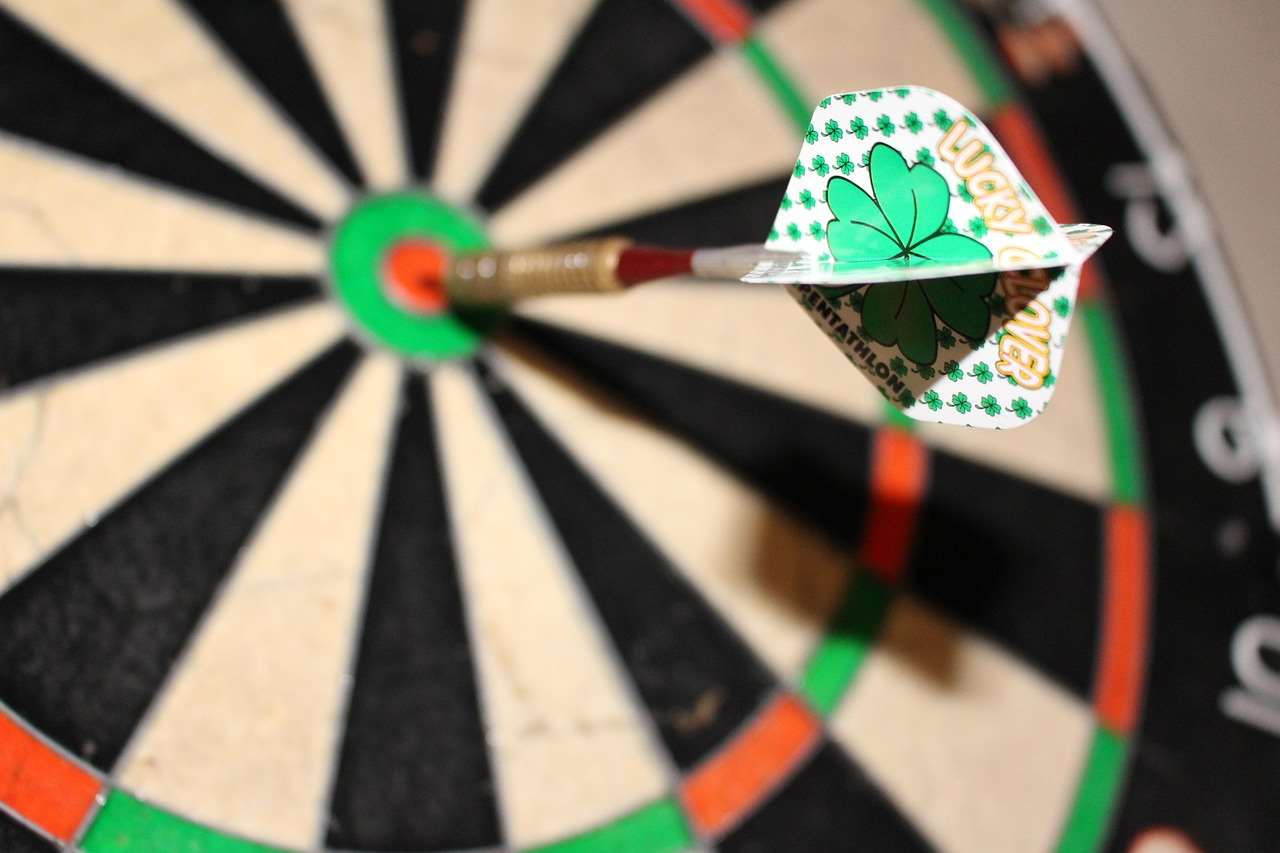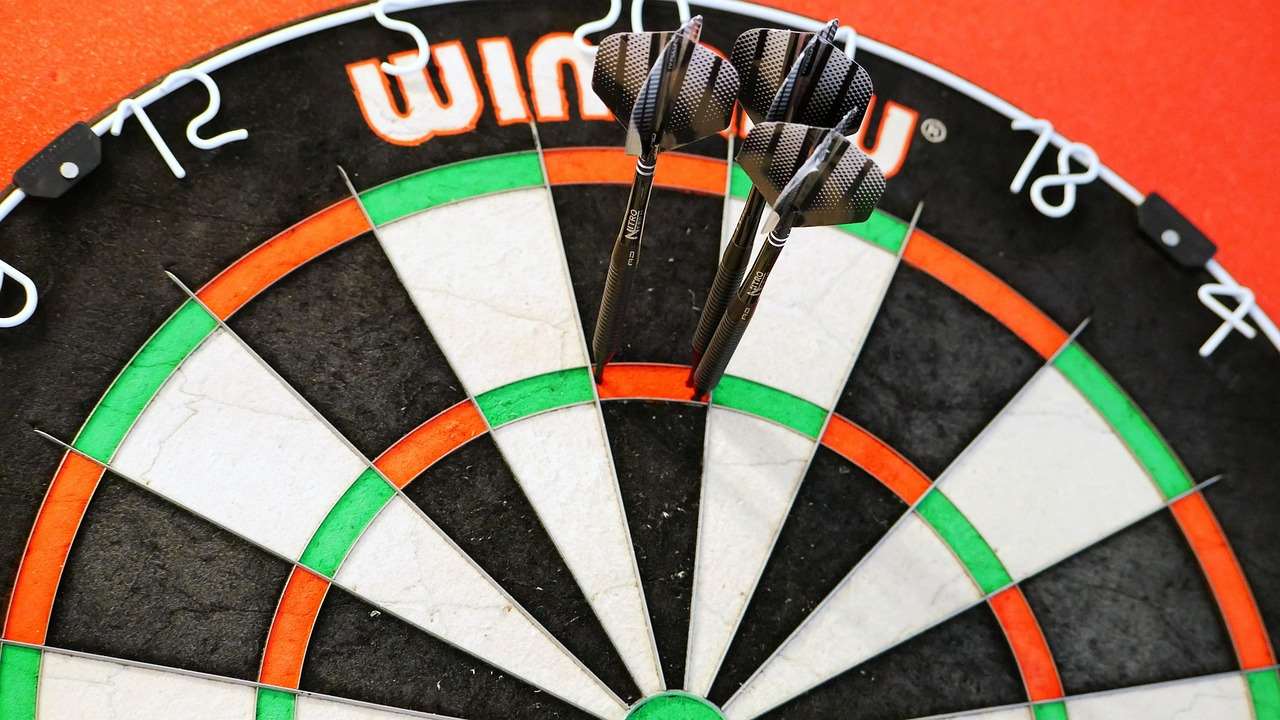Taking control of your fantasy darts league is paramount to enjoyment, and that’s where Fantasy Darts League Rules Customization comes in; this article outlines how to fine-tune your league for maximum excitement and fairness. We’ll explore different rule options, scoring systems, and settings to create the perfect darts competition tailored to your group’s preferences. You’ll learn how to adjust settings to emphasize specific skills, balance risk and reward, and foster intense rivalries within your league.
⚠️ Still Using Pen & Paper (or a Chalkboard)?! ⚠️
Step into the future! The Dart Counter App handles all the scoring, suggests checkouts, and tracks your stats automatically. It's easier than you think!
Try the Smart Dart Counter App FREE!Ready for an upgrade? Click above!
Understanding the Need for Fantasy Darts League Rules Customization
The beauty of fantasy darts lies in its flexibility. Pre-set rules often fail to capture the unique dynamic of your group, leading to imbalances or uninteresting gameplay. Fantasy Darts League Rules Customization lets you adapt the game to emphasize particular player attributes, introduce strategic depth, and ultimately, make your league more engaging and competitive. By personalizing the league settings, you can foster a more inclusive and enjoyable experience for all participants.
Before diving into specific rules, consider what kind of experience you want to create. Do you want a league that rewards consistent scoring, or one that celebrates clutch performances under pressure? Understanding your goals will guide your decisions as you navigate the available options.

Key Areas for Fantasy Darts League Rules Customization
Several core areas lend themselves well to fantasy darts league rules customization. These include:
- Scoring Systems: How points are awarded for different achievements during matches.
- Team Selection: The process and restrictions around drafting and managing your team.
- Trading and Waivers: The rules governing player movement between teams.
- Matchups and Scheduling: How teams compete against each other throughout the season.
- Playoffs and Championship: The format for determining the league champion.
Each of these areas offers opportunities to inject your league with unique elements that set it apart from standard fantasy sports formats. Strategic decisions about player selection can be deeply impacted by the scoring settings chosen.
Scoring System Options
The scoring system is arguably the most crucial aspect of fantasy darts league rules customization. It directly impacts which players are most valuable and how teams strategize their lineups. Here’s a breakdown of common options:
- Points per Leg: Awarding points for each leg won encourages consistent performance.
- Points per 180: This rewards power scoring and favors players who frequently hit maximums. Consider factors like 180s Per Leg Stats For Betting.
- Points per High Finish (e.g., 100+ checkout): This emphasizes clutch performances and finishing ability.
- Points for Checkout Percentage: A more nuanced metric that rewards accuracy and consistency in closing out legs.
- Negative Points for Missed Doubles: Introducing negative points can add an element of risk and reward, punishing players for inaccuracy.
- Points for Nine-Dart Finishes: A rare and spectacular achievement that warrants a significant point bonus.
You can combine these scoring elements to create a balanced system that rewards a variety of skills. For example, you could award points for both legs won and 180s, incentivizing both consistency and power scoring.
Team Selection and Draft Customization
The draft is the foundation of any fantasy league. Customizing draft rules can add another layer of strategy and excitement. Common customization options include:
- Draft Order: Determine the draft order through random draw, reverse standings from the previous season, or a weighted lottery system.
- Draft Type: Choose between a snake draft (alternating order each round), auction draft (bidding on players), or a linear draft (same order each round).
- Roster Size: Adjust the number of players each team can roster to influence the availability of free agents.
- Position Limits: Restrict the number of players at each position (e.g., limiting the number of “top-tier” players a team can have) to promote diversity.
Consider allowing teams to protect a certain number of players from the previous season, fostering continuity and rewarding successful team management. Remember to consider the impact on Darts Betting And Fantasy Leagues Guide and how team composition might affect overall performance predictions.

Trading, Waivers, and Player Management Rules
Player movement throughout the season is crucial for keeping your league dynamic and competitive. Customizing trading and waiver rules allows you to control how players change teams.
- Trading Restrictions: Set limits on the number of trades allowed per season, or implement veto power for league managers to prevent collusion.
- Waiver Wire: Determine the order in which teams can claim dropped players (e.g., reverse standings, rolling waiver priority).
- Free Agency: Allow teams to sign players who are not currently rostered, potentially introducing new talent into the league.
- Minimum/Maximum Roster Moves: Limiting how often teams can add/drop players can either reward active management or emphasize the importance of initial drafting skills.
Implementing a trade deadline adds urgency and excitement as teams jockey for position heading into the playoffs.
Matchups, Scheduling, and League Structure
How teams compete against each other significantly impacts the league’s competitive balance. Customizing matchups and scheduling can create a more engaging experience.
- Head-to-Head vs. Total Points: Choose whether teams compete directly against each other each week (head-to-head) or accumulate points throughout the season to determine standings (total points).
- Number of Matchups: Determine how many times each team plays against each other during the regular season.
- Schedule Flexibility: Consider allowing teams to reschedule matches to accommodate real-life scheduling conflicts.
- Divisional Play: Divide the league into divisions and award bonus points for winning your division.
A well-structured schedule can generate rivalries and increase the intensity of matchups throughout the season.

Playoffs and Championship Format
The playoffs are the culmination of the season, and the format should reward consistent performance while also creating opportunities for upsets. Customizing the playoff format allows you to fine-tune the final stage of the competition.
- Number of Playoff Teams: Determine how many teams qualify for the playoffs.
- Seeding: Seed playoff teams based on regular-season standings or a more complex formula.
- Playoff Bracket: Choose between a single-elimination, double-elimination, or best-of-series format.
- Re-seeding: Re-seed teams after each round of the playoffs to ensure the highest-ranked teams always face the lowest-ranked teams.
- Consolation Bracket: Provide an opportunity for non-playoff teams to compete for a consolation prize or bragging rights.
Consider awarding a trophy or other prize to the league champion to recognize their achievement.
Examples of Customized Fantasy Darts League Rules
To illustrate the possibilities of fantasy darts league rules customization, here are a few examples:
- The “Power Scoring” League: Emphasizes 180s and high finishes with increased point values, rewarding aggressive players.
- The “Accuracy Matters” League: Focuses on checkout percentage and penalizes missed doubles, favoring consistent performers.
- The “Clutch Performance” League: Awards bonus points for wins in close matches or under pressure, celebrating players who excel in critical moments.
- The “Balanced Approach” League: Combines various scoring elements to reward a well-rounded skillset.
These examples demonstrate how different scoring systems can create unique league dynamics and reward different player attributes.

Tools and Platforms for Customizing Your Fantasy Darts League
Several online platforms offer tools and features to support fantasy darts league rules customization. These platforms typically allow you to:
- Create and manage your league.
- Customize scoring settings.
- Conduct drafts and manage rosters.
- Track match results and standings.
- Communicate with league members.
Research different platforms to find one that meets your specific needs and offers the level of customization you desire. Some platforms are specifically designed for fantasy sports, while others may require more manual setup.
Tips for Successful Fantasy Darts League Rules Customization
Here are some tips for ensuring your fantasy darts league rules customization is a success:
- Communicate with your league members: Discuss rule changes and gather feedback before implementing them.
- Keep it simple: Avoid overcomplicating the rules, as this can lead to confusion and frustration.
- Test and iterate: Be prepared to adjust the rules based on feedback and observations during the season.
- Be fair and consistent: Apply the rules equally to all teams and avoid making arbitrary changes mid-season.
- Have fun! The goal is to create an enjoyable and engaging experience for everyone involved.
Regular communication and feedback loops can help ensure everyone feels invested in the league’s success.
Impact of Recent Form on Fantasy Darts Performance
When considering fantasy darts league rules customization, remember the crucial impact of player form. Analyzing Recent Form Impact Darts Betting can be an invaluable element in your strategy. Incorporating stats based on recent performance into your scoring system or team selection process will add another layer of realism and challenge to the game. This may involve adjusting point values for players on hot streaks or implementing temporary penalties for those struggling with their game. Keeping abreast of player stats, like Player Average Score Analysis Darts, is also very beneficial.

Conclusion: Creating the Ultimate Fantasy Darts Experience
Fantasy Darts League Rules Customization empowers you to create a truly unique and engaging competition tailored to your group’s preferences. By carefully considering the different rule options, scoring systems, and settings, you can foster intense rivalries, reward specific skills, and maximize the enjoyment for everyone involved. Don’t be afraid to experiment and iterate until you find the perfect formula for your league. Remember the importance of communication and fairness throughout the process. Take control and transform your fantasy league into the ultimate darts experience! Ready to create your custom league? Visit our platform today and start building your dream darts competition!
Hi, I’m Dieter, and I created Dartcounter (Dartcounterapp.com). My motivation wasn’t being a darts expert – quite the opposite! When I first started playing, I loved the game but found keeping accurate scores and tracking stats difficult and distracting.
I figured I couldn’t be the only one struggling with this. So, I decided to build a solution: an easy-to-use application that everyone, no matter their experience level, could use to manage scoring effortlessly.
My goal for Dartcounter was simple: let the app handle the numbers – the scoring, the averages, the stats, even checkout suggestions – so players could focus purely on their throw and enjoying the game. It began as a way to solve my own beginner’s problem, and I’m thrilled it has grown into a helpful tool for the wider darts community.